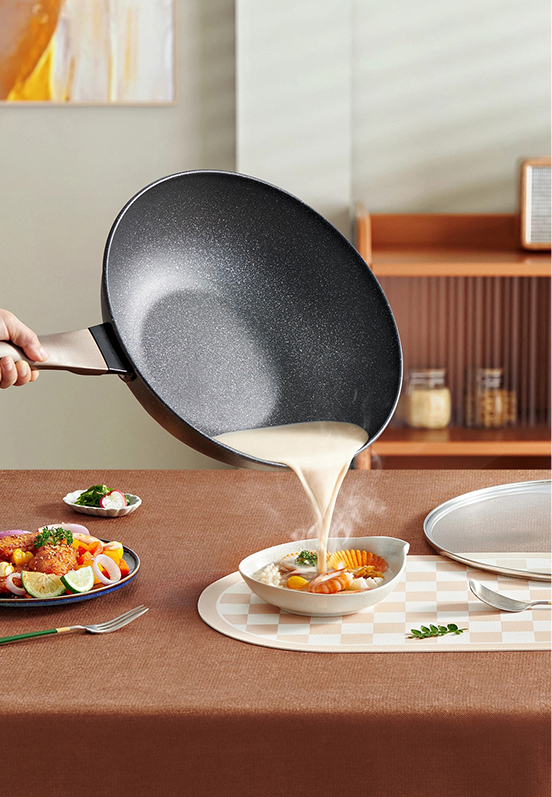2025-08-22
Iron pots and pans have long been a staple in kitchens around the world, appreciated for their durability and versatility. While many modern cookware materials have gained popularity in recent years, cast iron remains a preferred choice for many cooks due to its reliability, even heat distribution, and long-lasting nature. Whether for a home cook or a professional chef, these kitchen tools continue to offer practical benefits for preparing a variety of dishes.
One of the main advantages of iron cookware is its ability to retain heat efficiently. Cast iron is known for its excellent heat retention properties, which allow it to maintain consistent temperatures throughout the cooking process. This feature is especially useful when preparing dishes that require slow, steady cooking, such as stews, braises, and roasts. The cookware’s ability to hold and evenly distribute heat ensures that food is cooked uniformly, helping to prevent hot spots or uneven cooking.

Iron pots and pans are also celebrated for their durability. A well-maintained cast iron pan can last for many years, often even being passed down through generations. The material’s resilience to wear and tear makes it a practical investment for cooks looking for reliable kitchenware that will stand the test of time. Unlike some other materials, iron cookware does not degrade or warp with frequent use, which adds to its value in the kitchen.
One of the key benefits of using iron cookware is its versatility. It can be used on a variety of stovetops, including gas, electric, and induction, and is also suitable for use in ovens and over open flames. This flexibility makes it ideal for a wide range of cooking techniques, from searing and frying to baking and simmering. Many iron pots and pans come with features such as sturdy handles and lids, which enhance their usability in both everyday meals and more complex recipes.
Moreover, iron cookware is often praised for its natural non-stick properties. When properly seasoned, the surface of cast iron becomes smooth and develops a protective coating that prevents food from sticking. This makes cooking and cleaning easier, especially when preparing delicate foods like eggs or fish. Proper seasoning also helps protect the cookware from rust, ensuring that it remains in good condition over time.
Despite its many advantages, iron cookware does require some attention and care. It is important to properly season cast iron pans to maintain their non-stick surface and to prevent rust from developing. Regular cleaning and drying after each use are necessary to keep the cookware in good condition. However, many cooks find that the effort required to maintain iron cookware is well worth the benefits it offers.
Another factor contributing to the enduring popularity of iron pots and pans is their aesthetic appeal. Many cooks appreciate the rustic, traditional look of cast iron, which adds character to the kitchen. This aesthetic appeal, combined with its functional benefits, makes cast iron a sought-after material for cookware.
In conclusion, iron pots and pans offer a practical solution for cooks who value reliability, heat retention, and versatility in their kitchenware. While some care and maintenance are required, the long-lasting durability and ability to enhance the cooking process make cast iron a worthwhile investment for anyone looking to improve their culinary experience. With their enduring popularity, iron cookware will likely remain an essential tool for many years to come.